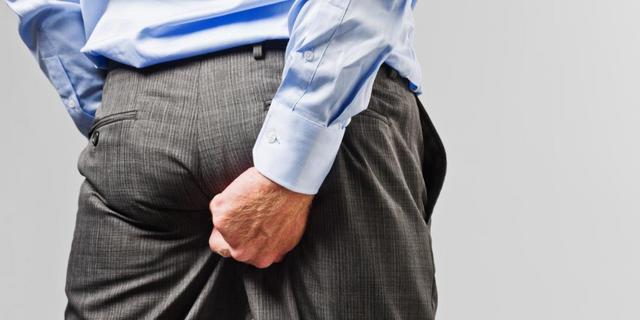
Anal itching: Here are its causes and how to treat it
Anal itching is mostly accompanied by the desire to scratch.
Anal itching (known medically as pruritus ani) is irritation of the skin at the opening of the anal canal through which stool exits the body that leads to itching.
The skin surrounding the opening is known as the anus. The itching is accompanied by the desire to scratch.
Although itching may be a reaction to chemicals in the stool, it often implies that there is inflammation of the anal area.
The intensity of anal itching and the amount of inflammation increases with the direct trauma of scratching and the presence of moisture.
At its most intense, anal itching causes intolerable discomfort that often is described as burning and soreness.
Common causes of anal itching
An itchy bottom can be caused by irritating chemicals in the foods we eat, such as are found in spices, hot sauces, and peppers.
Anal itching also can be caused by the irritation of continuous moisture in the anus from frequent liquid stools, diarrhoea, or escape of small amounts of stool (incontinence or faecal spoilage). Moisture increases the possibility of infections of the anus, especially yeast, particularly in patients with diabetes or HIV.
Treatment with antibiotics can lead to a yeast infection and irritation of the anus.
Psoriasis can irritate the anus.
Abnormal passageways (fistulas) from the small intestine or colon to the skin surrounding the anus can form as a result of medical conditions (such as Crohn’s disease), and these fistulas bring irritating fluids to the anal area.
Rarely, tumours of the anus (anal cancer) may be the cause of itching.
Other problems that can cause anal itch include:
- Pinworms
- Haemorrhoids
- Tears of the anal skin (fissures)
- Skin tags (abnormal local growth of anal skin).
Lifestyle and home remedies
Prevention of anal itching mainly involves a careful washing routine that keeps the area clean, cool and dry, while avoiding further irritating the skin.
If you already have anal itching, try these self-care measures:
- Cleanse gently
Clean the area around the anus with plain water or mild soap and a soft (non-terry) washcloth once daily. Avoid scrubbing. Pat dry or use a hairdryer set on low.
If you have faecal incontinence or diarrhoea, clean the area around the anus with moist cotton balls or a squirt bottle of plain water. It may also help to apply a moistened or dry cotton ball to the outside of the anus.
- Don’t scratch
Scratching further irritates your skin. You may find some relief by applying a moist, room-temperature compress to the area or taking a lukewarm oatmeal bath. Trim your nails short and wear cotton gloves while you’re sleeping to help prevent scratching.
- Wear white cotton underwear that doesn’t bind
This helps keep the area dry. Avoid wearing pantyhose and other tight-fitting garments because these can trap moisture
- Avoid irritants
Avoid bubble baths, genital deodorants, harsh or perfumed soaps, and moist wipes. Use white, unscented toilet paper.
Change your diet. Cut back on or avoid coffee, cola, alcohol, citrus fruits, chocolate, spicy foods, tomatoes and foods that may cause diarrhoea. Avoid overuse of laxatives.
- Apply ointments or gel
Protect the affected skin from moisture by applying a thin layer of zinc oxide ointment (Desitin, Balmex) or petroleum jelly (Vaseline). If needed, apply hydrocortisone 1 percent cream two to three times a day for a brief period to relieve symptoms.
- Maintain regular, firm bowel movements
If soft stools or frequent bowel movements are a problem, gradually adding fibre to your diet may help. Fibre supplements such as psyllium (Metamucil) and methylcellulose (Citrucel) also may help.
Source: pulse news






